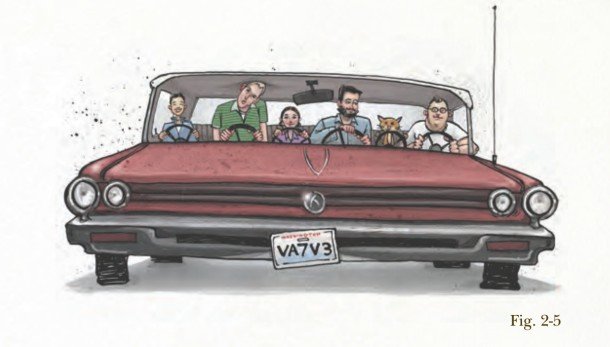Valve's flat structure contains "hidden layer of powerful management", claims ex-employee

Earlier this year, former Valve hardware developer Jeri Ellsworth offered a glimpse at the less-than-utopian reality of the company's unusual internal structure when she announced that she'd been fired amid a round of lay-offs. Now, in a recent interview for The Grey Area podcast , the self-described "bitter" ex-staffer offered more details on her dismissal, as well as the existence of what she calls a "hidden layer of powerful management" within Valve.
"Now we've all seen the Valve handbook , which offers a very idealised view," Ellsworth said in the interview, transcribed by Develop . "A lot of that is true. It is a pseudo-flat structure, where in small groups at least in small groups you are all peers and make decisions together.
"But the one thing I found out the hard way is that there is actually a hidden layer of powerful management structure in the company. And it felt a lot like High School. There are popular kids that have acquired power, then there's the trouble makers, and then everyone in between. Everyone in between is ok, but the trouble makers are the ones trying to make a difference.
"I was struggling trying to build this hardware team and move the company forward. We were having a difficult time recruiting folks - because we would be interviewing a lot of talented folks but the old timers would reject them for not fitting into the culture."
Later in the interview, Ellsworth criticised the lack of checks and balances within the company, and claimed the flat structure made certain tasks unnecessarily difficult. "If I sound bitter, it's because I am," she continued. "I am really, really bitter. Because they promised me the world and then stabbed me in the back.
"What I learned from Valve is that I don't think it works. Give people complete latitude with no checks and balances it is human nature that they will minimise the work that they do and increase the control that they have.
"We used to joke that it's good at hiring lots of lead guitarists. We went out and hired lots of great makers - but we were all lead guitarists, we couldn't go out and hire someone just to manufacture the parts. Just getting a tech for around the lab was almost impossible. That's why a layer of management can help organisations."
The biggest gaming news, reviews and hardware deals
Keep up to date with the most important stories and the best deals, as picked by the PC Gamer team.
Expanding on this, Ellsworth makes a surprising declaration: that the company's bonus system encourages staff to avoid risky projects. "They have a bonus structure in there where you can get bonuses - if you work on very prestigious projects - that are more than what you earn. So everyone is trying to work on projects that are really visible. 'Look at me, I am making all these great improvements to the latest and greatest video game'.
"And it's impossible to pull those people away for something risky like augmented reality because they only want to work on the sure thing. So that was a frustration, we were starved for resources."
Ellsworth also claimed that her firing went against the employee handbook's claims. "The day I got fired I was walking up to the elevator and one of the mechanical engineers said 'Did you hear so-and-so was laid off?' It was someone on our project. I was mad. I hopped in the elevator and went straight up to our team - and I found Rick, and he said 'I was fired. You too.'
"I couldn't believe it. The handbook said that if you get too far off course they will tell you about it."
For Ellsworth, there was a happy end of sorts. When detailing her final confrontation with Gabe Newell, she accounts an ultimatum: "you should fund this externally or give it to us".
"There was a lawyer in the room and Gabe just turned to him and said 'Give it to 'em'."
While the resulting legal discussions weren't quite as clear, Ellworth was eventually able retain ownership of the hardware she'd worked to create.
Despite everything, Ellsworth is still close to many at the company. "I'm still really friendly with the folks there and the ones I wasn't friends with before we became friends since. My heart goes out to them - it's probably completely different, and they may have got their machinist."
But even though she admits that she "loved them", Ellsworth asserts that a "weird paranoia" exists. "They went on a witch hunt and got rid of me and a bunch other talented folks. And it was just a couple of people [that did that] - that's what happens when you have a flat management structure like that, a bunch of people can wreak that kind of havoc.
"They definitely don't want this kind of story getting out there."

Phil has been writing for PC Gamer for nearly a decade, starting out as a freelance writer covering everything from free games to MMOs. He eventually joined full-time as a news writer, before moving to the magazine to review immersive sims, RPGs and Hitman games. Now he leads PC Gamer's UK team, but still sometimes finds the time to write about his ongoing obsessions with Destiny 2, GTA Online and Apex Legends. When he's not levelling up battle passes, he's checking out the latest tactics game or dipping back into Guild Wars 2. He's largely responsible for the whole Tub Geralt thing, but still isn't sorry.

